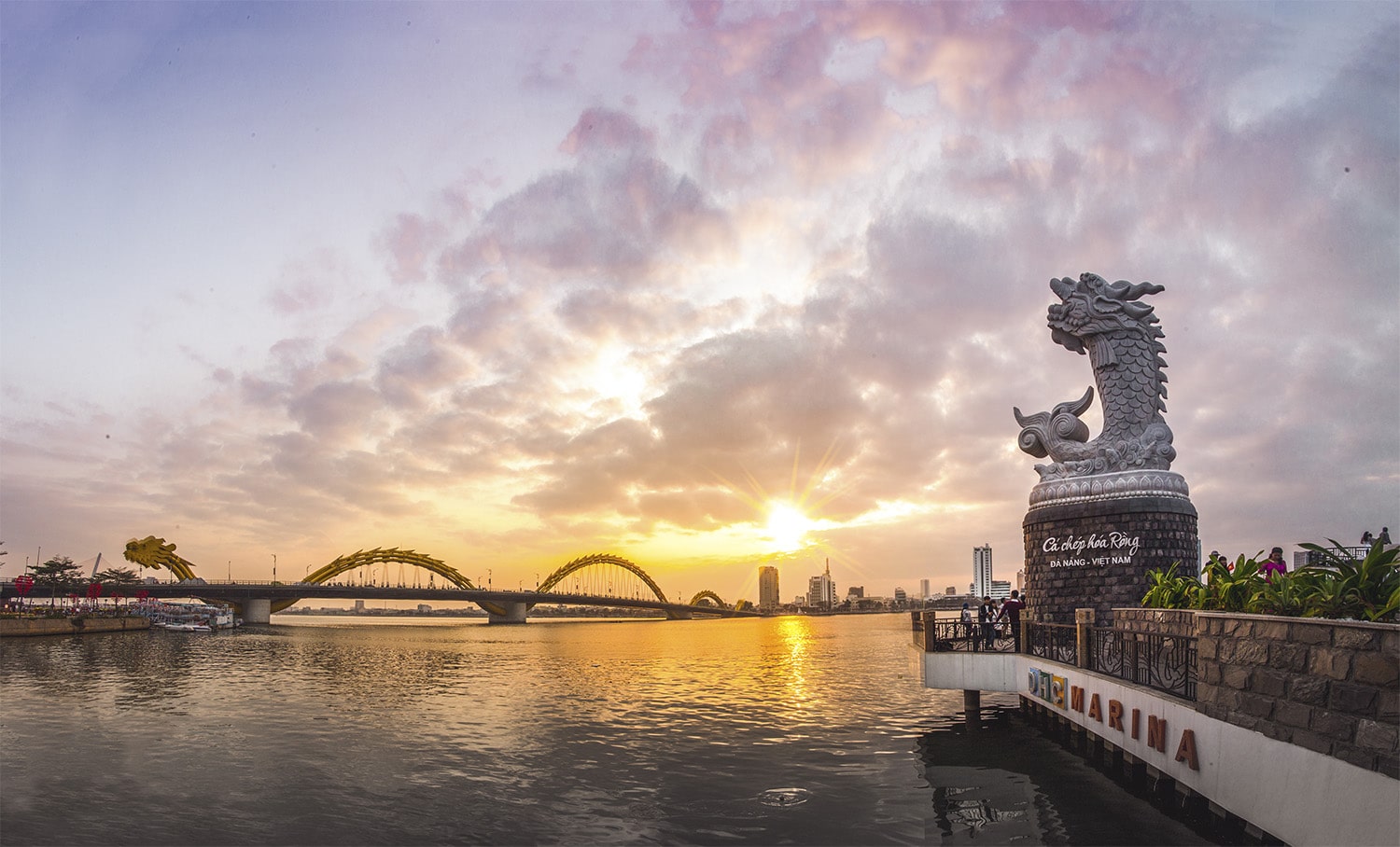
30 interesting facts about Da Nang
- 👁️ 278
Da Nang, a coastal city in central Vietnam, is known for its sandy beaches and history as a French colonial port. It’s a gateway to several UNESCO World Heritage Sites, including the Imperial City of Hue, the Old Town of Hoi An, and the My Son ruins. Da Nang stands out not just for its historical significance but also for its modern infrastructure, making it a unique blend of the old and new. The city’s scenic landscapes, coupled with its cultural richness, offer a fascinating glimpse into Vietnam’s diverse heritage. Here are some interesting and informative facts about Da Nang that highlight its unique features and attractions.
- Da Nang is the fourth largest city in Vietnam in terms of urban population.
- The city is located halfway between the capital, Hanoi, and Ho Chi Minh City, the country’s largest city.
- Da Nang is home to the Marble Mountains, a cluster of five limestone and marble hills, each named after one of the five elements.
- The Dragon Bridge, a symbol of Da Nang, is famous for its dragon design, which can breathe fire and water on weekend evenings.
- Da Nang’s coastline stretches over 30 kilometers, boasting some of the most beautiful beaches in Vietnam, such as My Khe Beach.
- The Ba Na Hills, located just outside Da Nang, are known for their cooler climate and the French Village, reminiscent of a medieval European town.
- The Golden Bridge, opened in 2018 in the Ba Na Hills, has attracted global attention for its unique design, supported by giant stone hands.
- Da Nang was a significant battleground during the Vietnam War, and remnants of the war can still be seen at various sites around the city.
- The Museum of Cham Sculpture in Da Nang houses the world’s largest collection of Cham artifacts, dating back to the 7th century.
- Da Nang’s Han Riverfront is a popular area for both locals and tourists, featuring a mix of modern and traditional Vietnamese architecture.
- The city experiences a tropical monsoon climate, with a wet season from September to March and a dry season from April to August.
- Da Nang International Airport is one of the busiest in Vietnam, serving as an important hub for domestic and international flights.
- The Son Tra Peninsula, also known as Monkey Mountain, offers panoramic views of Da Nang, a diverse range of flora and fauna, and a giant statue of the Goddess of Mercy.
- Da Nang hosted the APEC Economic Leaders’ Week in 2017, marking a significant event in the city’s and Vietnam’s economic development.
- The city has undergone rapid urbanization and development, becoming a center for technology and innovation in Vietnam.
- Da Nang’s Linh Ung Pagoda on Son Tra Peninsula is famous for its 67-meter tall statue of the Bodhisattva of Mercy, the tallest in Southeast Asia.
- The city’s culinary scene is diverse, offering a blend of traditional Vietnamese dishes and international cuisine.
- The Han Market and Con Market are popular destinations for experiencing Da Nang’s vibrant local markets and street food.
- Da Nang’s night markets, such as the Son Tra Night Market, offer a lively atmosphere with a variety of food, crafts, and entertainment options.
- The Asia Park, featuring the Sun Wheel, one of the tallest Ferris wheels in Asia, offers an amusement park and cultural experience in one location.
- Da Nang is a popular destination for international conferences and events, thanks to its modern facilities and scenic beauty.
- The city’s bridges, including the Han River Bridge, the Thuan Phuoc Bridge, and the Dragon Bridge, are architectural marvels and popular photo spots.
- My Son Sanctuary, a UNESCO World Heritage Site near Da Nang, showcases the ancient Champa civilization’s temple ruins.
- The Non Nuoc Beach at the foot of the Marble Mountains is renowned for its soft white sand and clear blue waters.
- Da Nang’s Phap Lam Pagoda is an oasis of tranquility in the heart of the bustling city, featuring beautiful Buddhist sculptures and serene gardens.
- The city’s history can be traced back to the Champa Kingdom, which controlled the central and southern parts of Vietnam from the 7th to the 15th centuries.
- Da Nang’s growth as a port city was significantly influenced by the French during their colonization of Vietnam.
- The InterContinental Danang Sun Peninsula Resort, located in Da Nang, has been named the world’s leading luxury resort multiple times.
- The Da Nang Cathedral, built by the French in the 1920s, is known for its pink color and Gothic architecture.
- The Love Lock Bridge Da Nang, inspired by the Pont des Arts in Paris, is a popular spot for couples to hang locks as a symbol of their love.
Da Nang is a city that beautifully balances its rich historical past with a dynamic present, making it a must-visit destination in Vietnam. From its stunning natural landscapes and architectural wonders to its significant cultural sites and delicious cuisine, Da Nang offers a diverse range of experiences for every traveler. Its rapid development and growing importance on the global stage underscore its potential as a city that not only honors its traditions but also embraces the future.
Da Nang, a coastal city in central Vietnam, is known for its sandy beaches and history as a French colonial port. It’s a gateway to several UNESCO World Heritage Sites, including the Imperial City of Hue, the Old Town of Hoi An, and the My Son ruins. Da Nang stands…